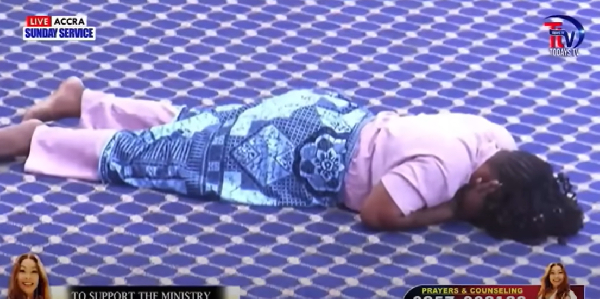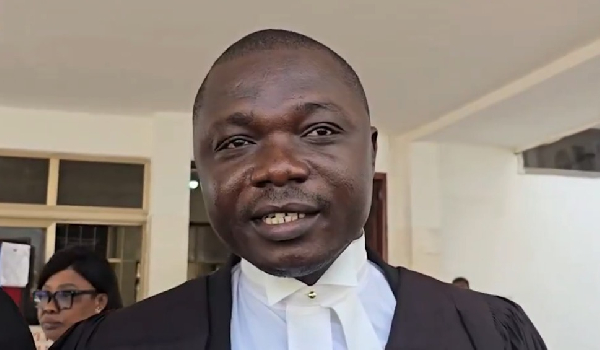Ghana's Conviction Of Agradaa Sets Legal Precedent For Spiritual Scams Crackdown
The 15-year prison sentence with hard labor for Patricia Asiedua Asiamah, widely known as Nana Agradaa, highlights a widespread vulnerability to deceptive spiritual schemes. The Accra Circuit Court convicted the former traditional priestess turned evangelist on multiple counts of charlatanic advertisement and defrauding by false pretense.
“This verdict sends an unequivocal message that no one, regardless of their spiritual claims or public persona, is above the law when it comes to defrauding citizens,” Prosecutor Mark Smith said outside the courtroom.
Ghanaians, desperate for money, into giving away a lot of their own money. The verdict was cemented after the mandatory pregnancy test set the stage for immediate sentencing. The majority of Ghanaians see it as a landmark case against fraudulent spiritual practices. That reflects a call for accountability in a country where spirituality can sometimes be weaponized for selfish motives.
The jail sentence of Nana Agradaa, founder of Heaven Way International Church has triggered mixed emotions from Ghanaians. It exposes different interpretations of justice, religious belief, and the effectiveness of the judiciary.
Ghanaians who support the verdict typically see it as victory of the rule of law against exploitation. Legally, their endorsements usually stem from the clear provisions of Ghana’s Criminal Offences Act, 1960 (Act 29), specifically on “charlatanic advertisement” (Section 137) and “defrauding by false pretenses” (Section 131-132).
While that notion is consistent with the freedom of religion law, it does not leave room for crime. “This ruling validates the cries of many victims and reinforces public trust in our legal system to hold spiritual leaders accountable,” said Dr. Kwesi Botchway, a Ghanaian legal expert.
Ghanaians opposing the verdict, do so for reasons that may include religious belief, distrust of the judiciary, or faith in the defendant’s innocence or spiritual power. They can also object to the application or interpretation of the law in question.
“This is an attack on a woman of God. People gave willingly out of faith, not under duress. The court misunderstood spiritual transactions,” a supporter of Agradaa said.
Such critics could argue in response that the exchanges were voluntary gifts, not fraudulent inducements, or that the “spiritual powers” Nana Agradaa sold are outside the jurisdiction of the court. Others may genuinely believe in Agradaa’s powers or think prosecution of her is an attack on charismatic religious practice.
The law process involved in this case reflects some interesting differences between the United States and Ghana. Ghana’s Criminal Offences Act, 1960 (Act 29), in fact, includes provisions for “charlatanic advertisement” and “defrauding by false pretenses.”
This statutory specificity allows for direct prosecution of individuals who leverage supernatural claims for financial deceit. That’s what is being displayed in Agradaa’s conviction. This directness offers a clear legal avenue for victims seeking redress from such specific forms of fraud.
The US legal tradition is based on a common law system that upholds freedom of speech and religion. It typically depends on more general federal and state fraud statutes. That includes mail fraud, wire fraud, and consumer protection laws, to prosecute similar cases. Though the First Amendment protects religion, it does not shield fraudulent activities disguised as religion. Prosecutions in the US tend to focus on the act of deception and monetary damage, not the spiritual claims per se. This implies that while the US does not have a direct equivalent to Ghana’s “charlatanic advertisement” as a separate offense, the underlying fraudulent behavior would nonetheless be actionable. “While our legal language differs, the core principle remains consistent across democratic nations: religious freedom is not a license for financial exploitation,” Professor Evelyn Reed, a constitutional law expert, noted in a recent online seminar.
Despite their distinct legal approaches, both Ghana and the United States grapple with the persistent problem of spiritual and religious fraud. In Ghana, instances like “Mobile Money Miracles” and “Sakawa” – online fraud are often mixed with traditional rituals. It shows how scammers exploit belief systems and the desire for instant wealth. The case of Agradaa underscores a common human susceptibility to promises of the miracle.
Across the Atlantic, the US has a history of “affinity fraud,” where scammers go after certain religious or ethnic communities, leveraging trust and shared beliefs. Notable cases have included televangelists and church leaders who ran sophisticated Ponzi schemes, promising divine returns on investments. These schemes do not often involve claims of “money doubling” through spiritual power. But, they share the core element of exploiting faith for illegal financial benefit, which leads to severe penalties including imprisonment and restitution.
The Baptist Foundation of Arizona scandal, one of the largest religious financial institution meltdowns that wiped out over $500 million, is a typical example of the crushing effect of such schemes. According to the Federal Trade Commission (FTC), Americans lost over $2.7 billion (31.455 billion Ghanaian Cedis) to imposter scams in 2023, including some religious-themed schemes.
Specific breakdowns by racial group are not always available for all fraud types. Recent data on fraud shows that older people and minority groups, including several racial groups, tend to be disproportionately targeted. They become victims to such crimes due to factors like trust within community networks and maybe minimum access to financial literacy resources. These scams are particularly insidious because they weaponize trust, a cornerstone of both religious and community bonds,” Sarah Chen, a US Federal Bureau of Investigation agent stated in a recent public awareness campaign.
Nana Agradaa’s conviction is a strong warning shot, not just for Ghana but the world at large. It underscores the need for protection against the exploitation of religion in pursuit of illegal enrichment. For readers outside Ghana, the case provides a glimpse into a legal system that, although differently codified, aims to protect its people from economic fraud.
There has also been controversy over the intersection of religious freedom and accountability in both Ghana and the US. Although genuine spiritual practices remain protected, the judge’s ruling asserts once again that criminals engaged in fraud will be brought to justice. It points to concerns over the media’s role in publicizing such claims, as well as Ghanaians’ responsibility to exercise caution, even if miracles are promised. Nana Agradaa’s 15 years’ imprisonment with hard labour should remind Ghanaians that even so-called religious or spiritual leaders are not exempted from the law.
Written By: Nana Karikari, Senior Global Affairs Correspondent












